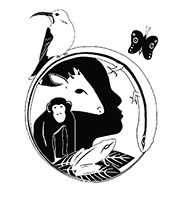Senior Scientists
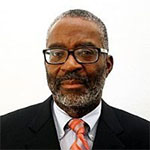 Walter Allen – Education & Information Studies, UCLA
Walter Allen – Education & Information Studies, UCLA
Dr. Allen is the Allan Murray Cartter Professor of Higher Education within the Department of Education, Graduate School of Education and Information Studies. He is also a Distinguished Professor of Sociology and the director of the Choices Project, a research initiative established by Dr. Allen himself that aims to improve the academic opportunities and achievements of African American and Latino students within the higher education system of California. Through research targeting the key transition points in the college attainment process, this initiative hopes to ensure higher academic and career success for California’s disadvantaged students. In general, Dr. Allen’s research and teaching has focuses on higher education, social inequality, family patterns, and socialization and personality development.
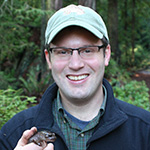 David Blackburn – Institute for Biodiversity Science and Sustainability, California Academy of Sciences
David Blackburn – Institute for Biodiversity Science and Sustainability, California Academy of Sciences
Dr. Blackburn is a curator of amphibians and reptiles in the Institute of Biodiversity Science and Sustainability at CAS. His research focused on the diversity, evolution, and conservation of amphibians in Africa. This work combines a variety of approaches including field surveys, biodiversity informatics, genetics, and studies of phenotypic diversity. His work in Central Africa has focused on untangling patterns of species diversity using genetic tools and understanding the origin and spread of an amphibian fungal pathogen. Recently, Dr. Blackburn has been working on projects involving captive-breeding to understand more of the reproductive biology of threatened frog species to inform in situ conservation management.
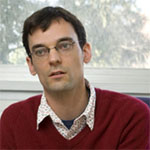 Curtis Deutsch – Atmospheric & Oceanic Science, UCLA
Curtis Deutsch – Atmospheric & Oceanic Science, UCLA
Dr. Deutsch’s research aims to investigate the interactions between biogeochemical cycles and the climate system in order to better understand past and predict future changes in the environment. He primarily focuses on modeling the connections between ocean biogeochemistry and climate at various spatial and temporal scales. Dr. Deutsch has created simple models that show the impact of climate change on species fitness and persistence across latitudes; this work broadly aims to answer questions about the relationships between global patterns of climate variability, biodiversity, and physiological adaptation to environmental change.
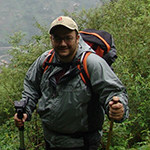 Michael Bruford – Cardiff University
Michael Bruford – Cardiff University
Dr. Bruford is a professor at Cardiff University’s Cardiff School of Biosciences. He is a molecular ecologist interested in studying the demographic and evolutionary processes in endangered species. His research focuses on the application of molecular genetics and genomics to the conservation of endangered species and livestock breeds. His research group seeks to understand how genetic diversity evolves in small populations, the role that local adaptation plays and its consequence for conservation biology and management. In this project, he trains Central African scientists in evolutionary biology and scientific methodology as part of the project’s capacity-building initiative.
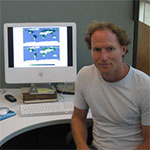 Wolfgang Buermann – Institute of the Environment & Sustainability, UCLA
Wolfgang Buermann – Institute of the Environment & Sustainability, UCLA
Dr. Buermann’s research focuses on the processes that control the exchange of energy, water and carbon between land surfaces and the atmosphere and how it pertains to vegetation dynamics. This research is relevant to several environmental problems, including understanding changes in near-surface climate and how this alters patterns of biodiversity and the terrestrial carbon cycle. Using ecological niche models combined with satellite and ground-based measurements of abiotic and biotic variables, Dr. Buermann explores patterns of species distributions under the effects of climate change and human alteration of the landscape, data that will be essential for developing effective conservation priorities.
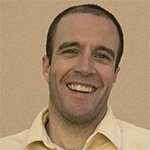 Brant Faircloth – Ecology and Evolutionary Biology, UCLA
Brant Faircloth – Ecology and Evolutionary Biology, UCLA
Dr. Faircloth’s research focuses on developing and expanding genome-scale techniques to non-model organisms in order to answer questions of ecological or evolutionary significance. His particular interests involve the evolutionary history of organisms, populations, and individuals; effects of genetic diversity on community structure and phenotypic outcomes; and effects of variable phenotypes on fitness. Generally speaking, I work at the intersection of field and molecular biology, parallel and distributed computational analyses, bioinformatics, genetics (few genes), and genomics (many/all genes). Dr. Faircloth currently works on numerous projects using an integration of field and molecular genomic techniques with bioinformatics to answer questions concerning evolutionary history, structure and composition of tropical forest communities, phylogeography of birds, mating and social systems, and population genetics. As part of the PIRE project, Dr. Faircloth will be developing molecular techniques for investigating adaptive genetic variation.
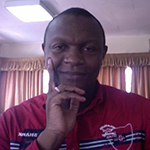 Eric Fokam – University of Buea
Eric Fokam – University of Buea
Dr. Fokam holds a B.Sc. and Maitrise in Zoology from the University of Dschang (Cameroon), an M.Phil. in Entomology from the University of Ghana (Ghana), and a Ph.D. in Zoology from the University of Buea (Cameroon). His research interests are the epidemiology and ecology of arthropod-borne viruses; and the impact of climate change on Animal species diversity with reference to haematophagous insects and amphibians species. His contribution to the PIRE grant will be to investigate the contribution of plastic responses to the overall ability of Amphibians to yield to the pressure of global warming as anticipated in present scenarios. Eric will oversee field sampling in different ecological landscapes in Gabon and Cameroon, and laboratory investigations at the University of Buea in Cameroon using the small puddle frog Phrynobatrachus auritus.
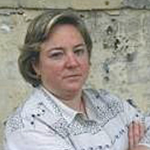 Hilary Godwin – Environmental Health Sciences, UCLA
Hilary Godwin – Environmental Health Sciences, UCLA
Dr. Godwin’s research focuses on the chemical and biological mechanisms by which toxic metal ions affect neurological signaling and development. Additionally, her research aims to develop assays for detection and analysis of infectious diseases. She is actively engaged in community outreach projects such as communicating science to nonscientists and a volunteer program to decrease the spread of infectious disease in Los Angeles elementary schools. She also works with local and national organizations to assess the impacts of climate change on public health in an effort to understand how to best ameliorate these impacts.
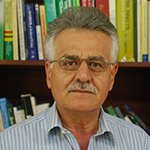 Rachid Hanna – International Institute of Tropical Agriculture (IITA), Cameroon
Rachid Hanna – International Institute of Tropical Agriculture (IITA), Cameroon
Dr. Hanna is a Senior Scientist, Entomologist and Country Representative based at the Cameroon station of the International Institute of Tropical Agriculture in Yaoundé. He has extensive experience in arthropod biodiversity, arthropod-host plant interactions, and biological control in a wide variety of cropping systems (e.g., cassava, maize, plantains, vegetables and tree fruits), with recent involvement in the development of climate-smart cocoa agroforestry that can serve for both climate adaptation and mitigation.
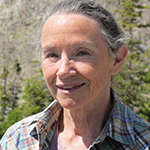 Gail Hearn – Biology, Drexel University
Gail Hearn – Biology, Drexel University
Dr. Gail Hearn, a biology professor at Drexel University in Philadelphia, PA, is the founder and Director of the Bioko Biodiversity Protection Program (BBPP), an academic partnership between Drexel and the National University of Equatorial Guinea. Since its establishment in 1998, the mission of BBPP has been the preservation of Bioko Island’s wildlife and natural ecosystems through programs in education (academic training; undergraduate study abroad), research (primates, sea turtles, amphibians and the bushmeat trade effects on wildlife) and active conservation (annual forest surveys; deployment of forest patrols and market census-takers).
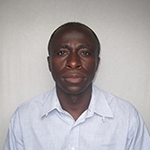 Serge Bobo Kadiri – Garoua Wildlife School
Serge Bobo Kadiri – Garoua Wildlife School
Dr. Bobo has a PhD in Conservation Biology from University of Göttingen, Germany. He has served as a senior lecturer at the department of forestry, University of Dschang in Cameroon and is currently the Director of the Garoua Wildlife School (Ecole de Faune de Garoua). His research interests are on the effects of land use on biodiversity (especially birds, plants (tree and understory), butterflies and small mammals), on bushmeat and human livelihood, on sustainable management of wildlife resources (particularly in logging concessions), on ornithological studies and on community forestry. He will be involved in field research concerning some taxa (bids, mammals), in professional development workshops, in undergraduate and graduate training and in other symposia (science and policy).
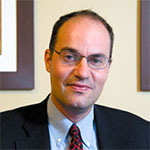 Matthew Kahn – Institute of the Environment & Sustainability, UCLA
Matthew Kahn – Institute of the Environment & Sustainability, UCLA
Dr. Kahn’s research focuses on environmental, urban, real estate, and energy economics. He is a leading educator in the field of environmental economics, publishing widely on the topics of climate change adaptation within urban environments, public transit, urban sprawl, the costs and benefits of environmental regulation, and the relationship between international trade and environmental quality.
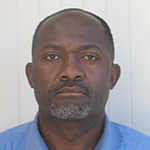 Jean-François Mboumba – Université des Sciences et Techniques de Masuku
Jean-François Mboumba – Université des Sciences et Techniques de Masuku
Dr. Mboumba is a Research professor at the Department of Biology in the University of Masuku in Gabon and Associated Researcher in the University of Rennes 1 (Brittany, France). He obtained his DUES in Biology Chemistry from the University of Masuku, a License in Organisms Biology and Master’s in Population Biology and Ecosystems from the University of Rennes 1 (France). He received a second Master’s degree in Time and Territories from the University of Le Mans in France and a PhD in Phylogeography from the University of Rennes 1. He is interested in the geographical distribution of African small mammal populations, the historical biogeography of these populations in West Central Africa, and in the conservation of the biodiversity. The work he has carried out in these last 10 years in western Central Africa (Gabon, Congo, CAR and Cameroon) allowed him to acquire a greater experience in the study of the African small mammal diversity, the distribution of genetic variability within and among populations, and the problems connected to the preservation of the biodiversity. His specific contributions to the PIRE project include small mammal sampling methods and morphological and genetic studies of one of the focal taxa of this study (Hylomyscus stella).
 Bethan Morgan – San Diego Zoo Institute for Conservation Research Central Africa Program
Bethan Morgan – San Diego Zoo Institute for Conservation Research Central Africa Program
Dr. Morgan is head of the San Diego Zoo Institute for Conservation Research Central Africa Program, as well as a research fellow of the Zoological Society of San Diego. She oversees all aspects of the Institute’s activities in Central Africa, with a strong focus on the region between the Sanaga River in Cameroon and the Cross River in Nigeria, and manages research and conservation activities at two permanently manned research stations in the Ebo Forest, Cameroon, where the PIRE summer research schools will be held, and where the botanical garden experiment plots will be established. Her interests include the ecology and conservation of gorillas, chimpanzees, a wide variety of monkey species, as well as forest elephants and Central African botany. Bethan received her doctorate in 2000 from the Department of Biological Anthropology at the University of Cambridge, UK, investigating ecological niche separation in large-bodied mammalian frugivores, particularly forest elephants, gorillas, and chimpanzees in a remote rain forest reserve in Gabon. Upon completing her doctoral degree, she was a visiting fellow in the Biological Anthropology Department at Harvard University, and taught the core science course on human behavioral biology. She is a member of the IUCN Primate Specialist Group (Section for Great Apes), the International Primatological Society, and the Society for Conservation Biology, and holds the position of honorary research fellow in the Department of Psychology at the University of Stirling, Scotland.
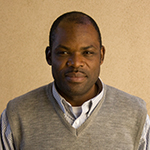 Kevin Njabo – Center for Tropical Research, UCLA
Kevin Njabo – Center for Tropical Research, UCLA
Dr. Njabo has been doing research in Africa for almost 15 years and currently functions as the Africa Director and Associate Director of the Center for Tropical Research, a part of the UCLA Institute of the Environment and Sustainability. Through his research activities and leadership roles, Dr. Njabo is committed to bridging the gap between academic and lay communities to bring the best possible science to decision-making and to maximize public understanding. This includes responsibilities such as (1) disseminating research results to a broad audience through publications as well as popular media and various wire services, (2) working closely with local and international NGOs, such as WWF, WCS, ICRAF, and IITA, and foreign governments in an effort to inform conservation decision-making with good science, and (3) serving on the board and steering committees of the Pan African Ornithological Congress and Society for Conservation Biology. As part of the educational component of this project, Dr. Njabo will be engaged in the training of US and Central African students in field biology programs. He will also be coordinating the field sampling in Central Africa in addition to developing molecular techniques to investigate adaptive genetic diversity of certain focal taxa.
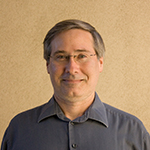 John Pollinger – Center for Tropical Research, UCLA
John Pollinger – Center for Tropical Research, UCLA
Dr. Pollinger is Associate Director of the Center for Tropical Research and Director of the UCLA Conservation Genetics Resource Center. He has two principal roles for the NSF PIRE grant: (1) As the project coordinator for UCLA, Dr. Pollinger provides administrative, contractual and financial expertise and support for all four principal efforts of the PIRE project — (i) education/collaboration/outreach, (ii) field research, (iii) laboratory/analytical and socioeconomic research, and (iv) evaluation/assessment. (2) Also as an expert in conservation and ecological genetics/genomics, Dr. Pollinger will be providing technical expertise for target taxa transcriptome generation, RADtag/targeted locus sequencing, mapping and analysis, and genotyping by sequencing (GBS) efforts.
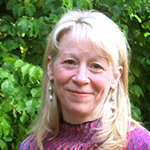 Geraldine Richmond – Department of Chemistry, University of Oregon
Geraldine Richmond – Department of Chemistry, University of Oregon
Geraldine (Geri) Richmond is the Richard M. and Patricia H. Noyes Professor of Chemistry at the University of Oregon. Her research using laser spectroscopy and computational methods focusses on understanding the chemistry and physics that occurs at complex interfaces that have relevance to important problems in energy production, environmental remediation, atmospheric chemistry and biomolecular surfaces. Awards for her scientific accomplishments include the American Chemical Society (ACS) Olin-Garvan Medal (1996), the Spiers Medal of the Royal Society of Chemistry (2004), the Bomem-Michaelson Award (2008), the ACS Joel H. Hildebrand Award in Theoretical and Experimental Studies of Liquids (2011) and the American Physical Society (APS) Davisson-Germer Prize (2013). She is a member of the National Academy of Sciences, the American Academy of Arts and Sciences and is a Fellow of the ACS, APS, AWIS and Society of Applied Spectroscopy.
Richmond has served on many governing and advisory boards including the Oregon State Board of Higher Education (1999-2006) and the National Science Board (2012-2018). She has testified on science issues before committees in the U.S. Senate, the U.S. House and the Oregon House of Representatives. She is the co-founder and Chair of COACh, a grass-roots organization that has helped in the career advancement of thousands of women scientists and engineers in the U.S., Asia, Africa and Latin America. Awards for these efforts include the Presidential Award for Excellence in Science and Engineering Mentoring (1997), the ACS Award for Encouraging Women in the Chemical Sciences (2005) and the Council on Chemical Research Diversity Award (2006). She helping to bring COACh career building workshops to Gabonese scientists through the PIRE Program.
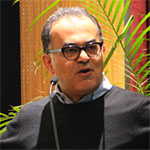 Sassan Saatchi – Institute of the Environment & Sustainability, UCLA
Sassan Saatchi – Institute of the Environment & Sustainability, UCLA
Dr. Saatchi’s research interests include wave propagation in disordered/random media and EM scattering theory. He has also been involved in various international research studies modeling global biogenic carbon distribution in tropical and boreal forests, hydrological processes in arid and semi-arid regions, and land-use and land cover change in addition to spatial modeling of species distributions and the design and scientific applications of several earth science spaceborne sensors. As part of the PIRE, Dr. Saatchi’s work will include application of remote sensing and modeling to questions of biodiversity and conservation.
